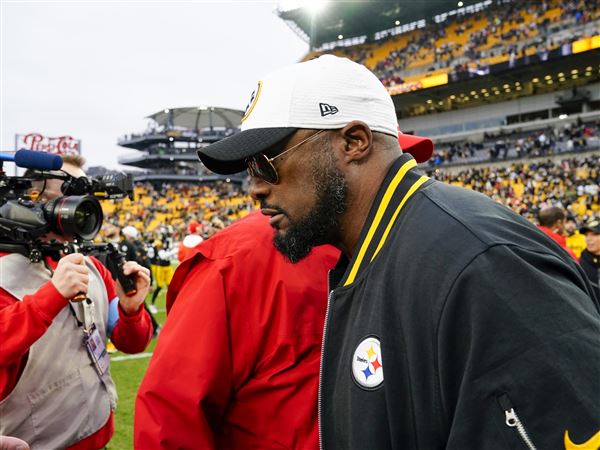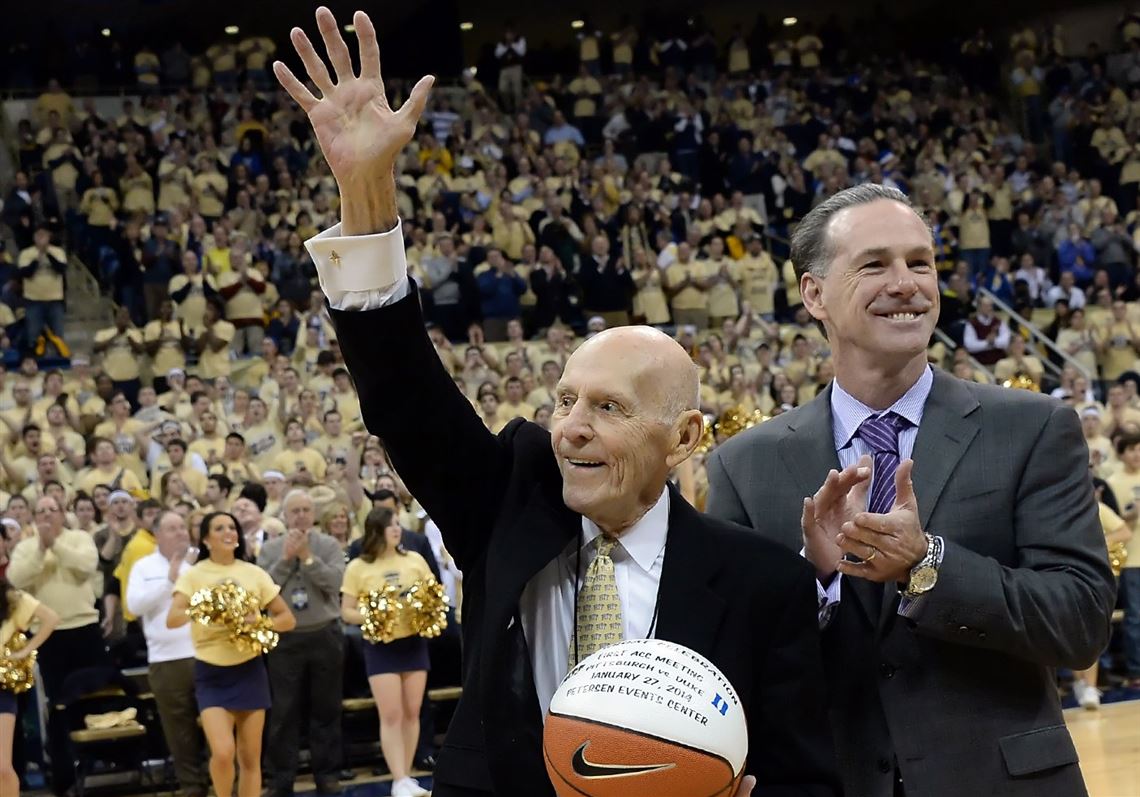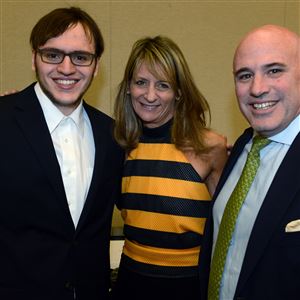Dick Groat considers himself the luckiest man to have walked on any baseball diamond or basketball court. He’s among the fortunate few to play both sports professionally.
Long before Groat, 85, settled into his current role as color commentator on Pitt basketball radio broadcasts, he was just a boy from Wilkinsburg with an inane imagination. One day in grade school, he told his older sister he would become an All-American in basketball and baseball, play both sports professionally and never spend a day in the minor leagues.
In this case, the truth truly is stranger than fiction. Despite two years of service in the U.S. Army, Groat was a two-sport All-American at Duke, played point guard for the Fort Wayne Pistons in 1952-53 and won two World Series and a National League MVP award in 14 major league seasons, nine with the Pirates.
Groat will be recognized Feb. 17 with the Lifetime Achievement Award at the 80th annual Dapper Dan Dinner and Sports Auction. Tickets are available for $150 for general seating and $250 for premium seating at www.post-gazette.com/dapperdan.
“I make the argument he’s the best athlete Western Pa. has ever produced,” Bill Hillgrove, Groat’s play-by-play partner, said recently. “People say, ‘Wait a minute, we’ve had some great ones.’ Yes, we have. But we haven’t had any except for Dick who played two sports at the highest level.”
Basketball, not baseball, was Groat’s first love. He still says he likely was 10 times better at basketball, anyway. Red Auerbach, Groat’s coach his sophomore year at Duke, would agree. The legendary Boston Celtics coach once told Hillgrove, “If [Groat] sticks with the big ball instead of the little ball, he’d have had a great career in the NBA.”
Groat, whose No. 10 was retired by Duke in 1952, was a two-time All-American in basketball. As a junior, he scored a then-NCAA-record 839 points in a season. The following season, he was named United Press International’s national player of the year.
Before Groat’s senior year, a Pirates scout suggested he give general manager Branch Rickey a ring when he was home in Swissvale. Rickey brought in Groat, a lifelong Pirates fan, for workouts with the team, then invited the Groat family to watch a game in his box suite.
As Groat remembers it, Rickey turned to him in the third inning and said, “Young man, if your father and you will sign a contract, I’ll start you against the Cincinnati Reds tomorrow night.”
“I said, ‘Mr. Rickey, that’s not even fair,’ ” Groat recalled. “ ‘You know I want to play major league baseball, but I owe my senior year to Duke. I’m going back to play basketball and baseball. But I promise you, if you make the same offer to me when my eligibility is up, I’ll sign with the Pirates.”
He didn’t hear from Rickey again until a year later.
“I returned from the College World Series on a Sunday night in June, and Mr. Rickey contacted me Monday,” Groat said. “I signed Monday night, joined the Pirates Tuesday, pinch-hit Wednesday and played every game the rest of the season. The man lived by his word.”
After the season, Groat returned to Duke to complete his degree, then was drafted third overall by the Pistons. He fit right in, averaging 18.5 points in his first four games, but nearly quit because the schedule forced him to miss his Monday, Wednesday and Friday classes. Pistons ownership arranged for a private plane to fly him back and forth between games and campus.
“I was able to play in the NBA, never practice one time with the Pistons and I’ve never had more fun in my life playing basketball,” Groat said. “Then when I graduated, Uncle Sam said, ‘I want you,’ and that's when I went into the service.”
When Groat returned two years later, Rickey doubled his salary — Groat’s previous deal was far less lucrative than his Pistons contract — and told the shortstop he needed to pick one sport.
The rest, of course, is well-documented history. He was an All-Star three times in nine years with the Pirates and helped key the franchise’s turnaround. He later played for the St. Louis Cardinals, with whom he won the 1964 World Series, Philadelphia Phillies and San Francisco Giants.
In 1960, Groat hit .325 and was named NL MVP, setting the stage for a postseason push, a World Series berth and, most memorably, Bill Mazeroski’s walk-off, series-winning blast against the Yankees.
“Oh boy, was it ever special,” Groat said. “To remind you again how lucky I’ve been, how many people are lucky enough to play on a world-championship team in their own hometown?
“How lucky can a guy be?”
Stephen J. Nesbitt: snesbitt@post-gazette.com and on Twitter @stephenjnesbitt.
First Published: January 10, 2016, 5:00 a.m.


















